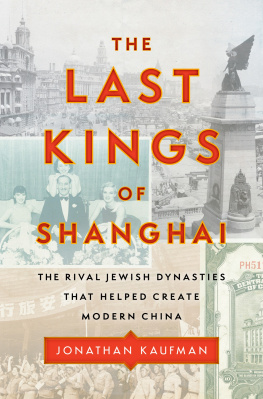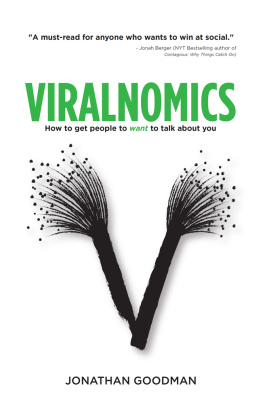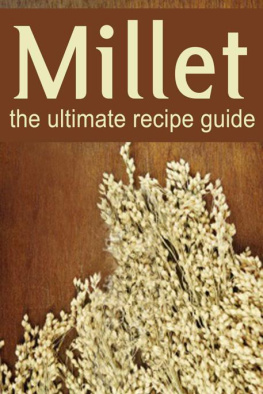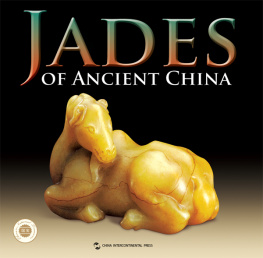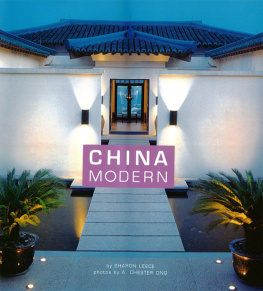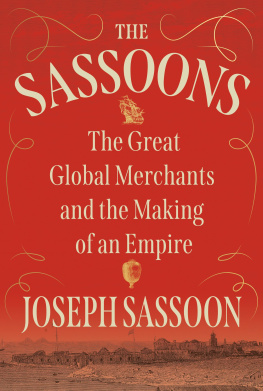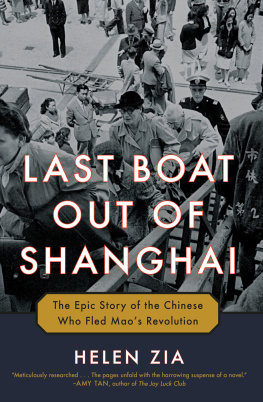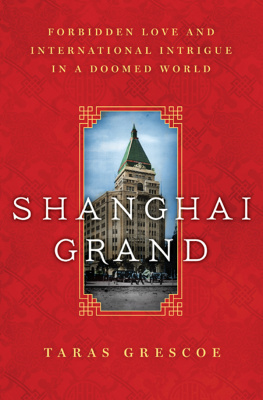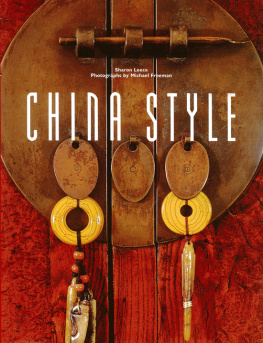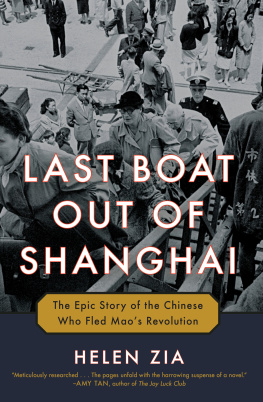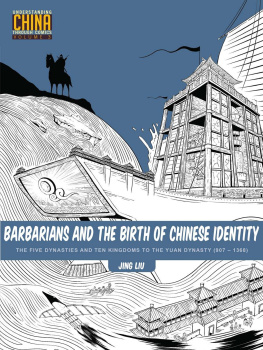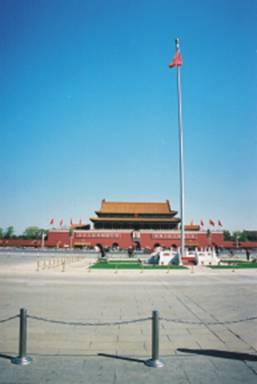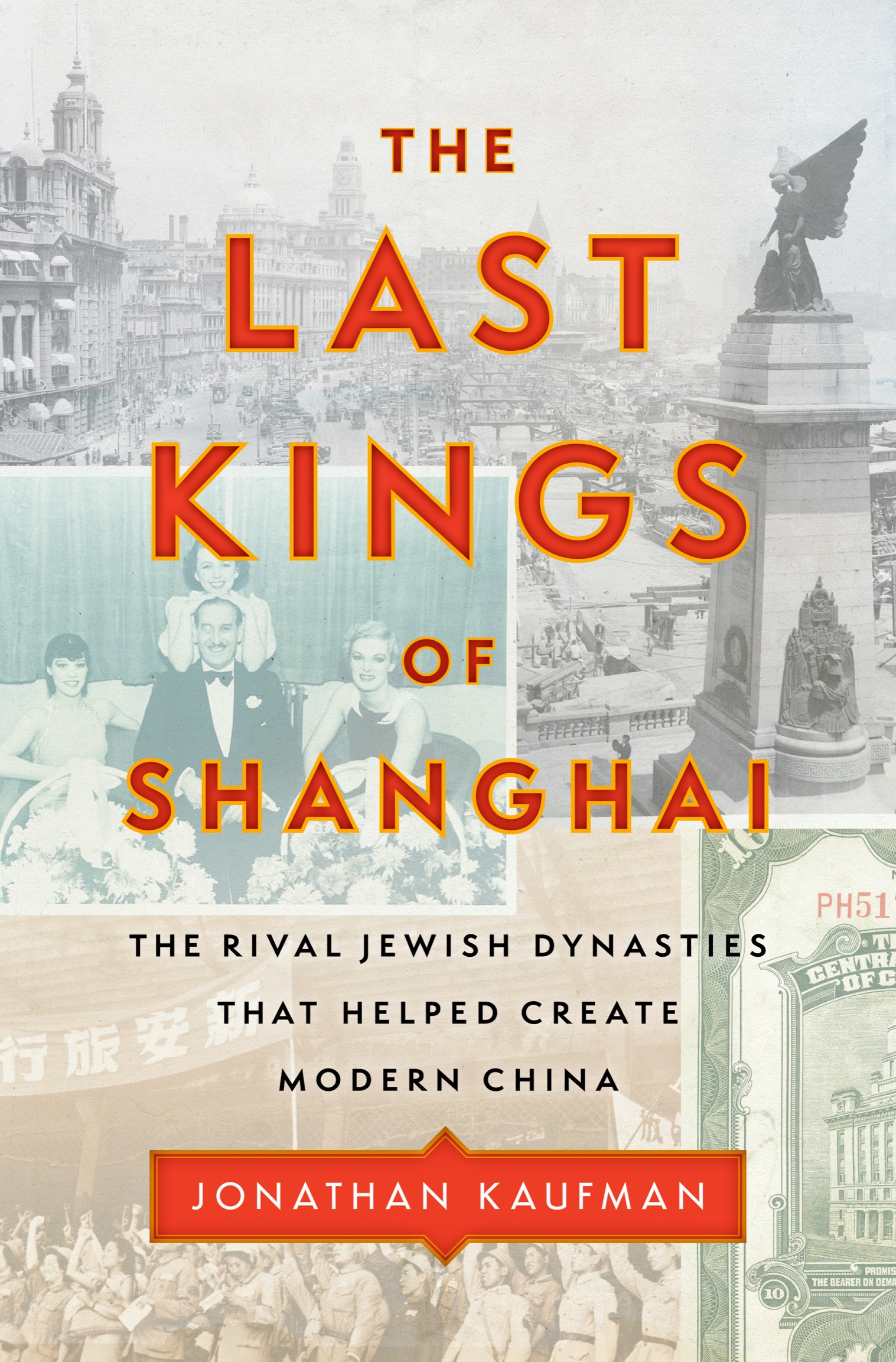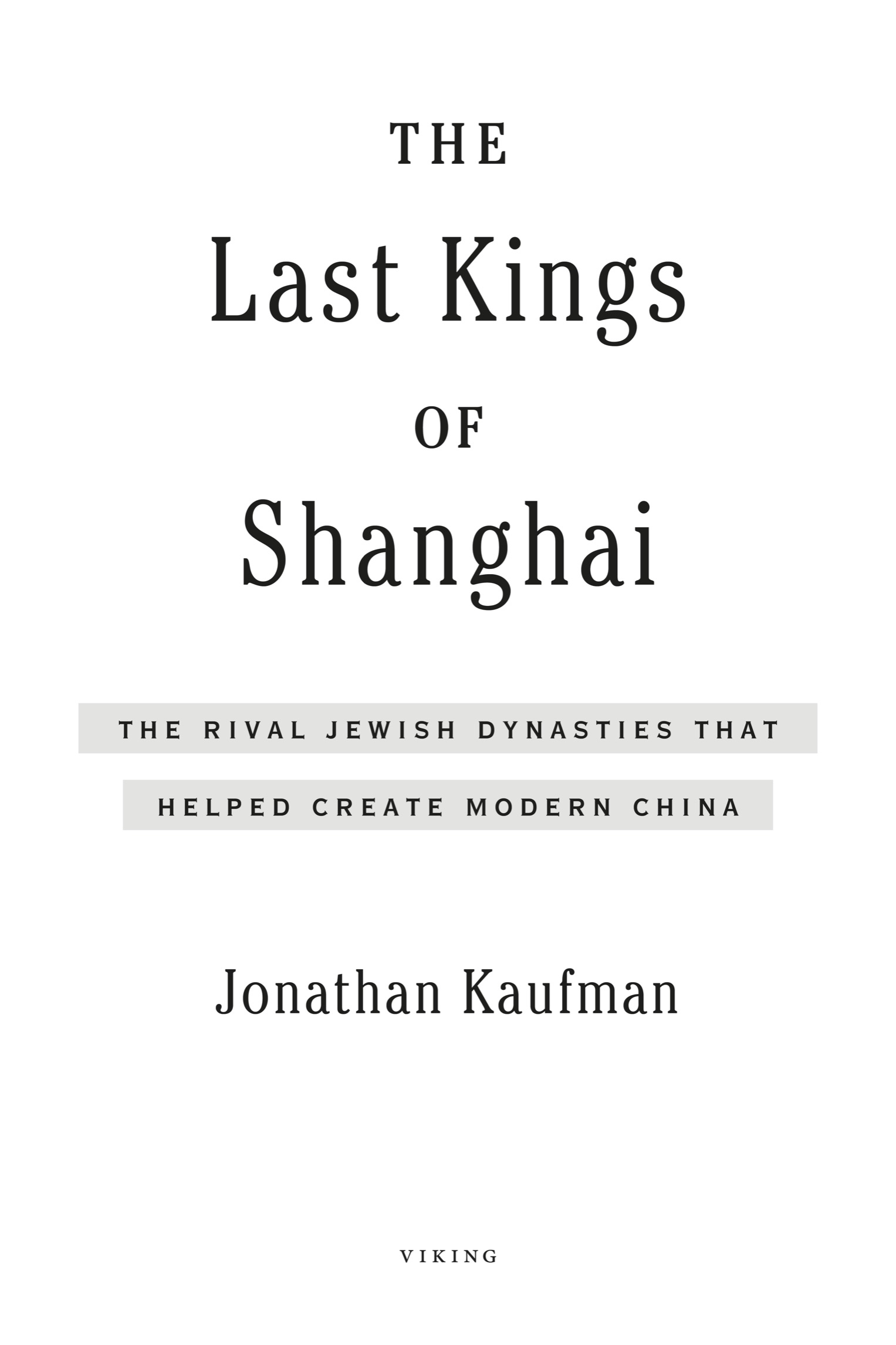ALSO BY JONATHAN KAUFMAN
A Hole in the Heart of the World
Broken Alliance
VIKING
An imprint of Penguin Random House LLC
penguinrandomhouse.com
Copyright 2020 by Jonathan Kaufman
Penguin supports copyright. Copyright fuels creativity, encourages diverse voices, promotes free speech, and creates a vibrant culture. Thank you for buying an authorized edition of this book and for complying with copyright laws by not reproducing, scanning, or distributing any part of it in any form without permission. You are supporting writers and allowing Penguin to continue to publish books for every reader.
Grateful acknowledgment is made for permission to reprint the following:
Excerpt from Song of Yearning by Shangchen Wang, translated by Zheng Yangwen, from The Social Life of Opium in China by Zheng Yangwen. Copyright 2005 by Zheng Yangwen. Reproduced with permission of Cambridge University Press through PLSclear.
Image on : Everett Collection Historical / Alamy Stock Photo;
Images on : Hong Kong Heritage Project;
Images on : DeGolyer Library, Southern Methodist University;
Image on : Everett Collection Inc. / Alamy Stock Photo;
Image on : Bruce yuanyue Bi / Alamy Stock Photo.
Map by Jeffrey L. Ward
LIBRARY OF CONGRESS CATALOGING-IN-PUBLICATION DATA
Names: Kaufman, Jonathan, author.
Title: The last kings of Shanghai : the rival Jewish dynasties that helped create modern China / Jonathan Kaufman.
Other titles: Rival Jewish dynasties that helped create modern China
Description: New York : Viking, [2020] | Includes bibliographical references and index.
Identifiers: LCCN 2019052103 (print) | LCCN 2019052104 (ebook) | ISBN 9780735224414 (hardcover) | ISBN 9780735224421 (ebook)
Subjects: LCSH: JewsChinaShanghaiHistory. | JewsChinaShanghaiSocial life and customs. | Shanghai (China)Ethnic relations. | Sassoon, David, 17921864Family. | Sassoon family. | Kadoorie, Elly, 18651944Family. | Kadoorie family. | Shanghai (China)Biography. | Jewish businesspeopleChinaShanghaiBiography.
Classification: LCC DS135.C5 K37 2020 (print) | LCC DS135.C5 (ebook) | DDC 951/.1320410923924dc23
LC record available at https://lccn.loc.gov/2019052103
LC ebook record available at https://lccn.loc.gov/2019052104
pid_prh_5.5.0_c0_r0
For Barbara, and for Molly, Ben, and Nickwho shared the adventure, with love and laughter
Contents
Cast of Characters
THE SASSOON FAMILY
David Sassoon (17921864). The patriarch. Scion of a prominent Jewish family from Baghdad, he and his eight sons built a business empire across Asia. Though he never learned Chinese or English, he piloted his family to dominate the China trade, subdue and shape Shanghai, control the opium business, bankroll the future king of England, and advise prime ministers.
Elias Sassoon (18201880). A loner, thin and bespectacled, Elias established the Sassoons business in Shanghai and eventually across China. Not even a bitter falling-out with his elder brother that split the family could slow his business success.
Flora Sassoon (18591936). The wife of one of Davids eight sons. A brilliant scholar and businesswoman, Flora took over the Sassoon business in Bombay and Shanghai when her husband died, working from her home because women in India at the time werent allowed to even visit business offices. She succeeded beyond all expectations until her brothers-in-law threw her out in a family coup.
Rachel Sassoon Beer (18581927). One of a string of talented Sassoon women, she was socially progressive and an early feminist who crusaded against anti-Semitism and rose to become the most powerful female journalist in England, editing The Observer and The Sunday Times. Yet she was scorned by her family and died alone of depression after being declared insane.
Victor Sassoon (18811961). Billionaire playboy, crippled at age thirty, Victor transformed Shanghai into a world-class city, bankrolled the Nationalist government, defied the Japanese, and saved thousands of Jewish refugees fleeing Nazism. Yet a friend said about him, Victor always made the wrong decision at the wrong time in the wrong place.
Emily Hahn (19051997). An American writer for TheNew Yorker, based in Shanghai. She became Victor Sassoons lover and companion and saw before he did the rise of the Communists and the inequalities of colonial Shanghai. Victor, jealous of Hahns affair with a Chinese writer, didnt listen to her.
THE KADOORIE FAMILY
Elly Kadoorie (18651944). Elly started out as a student and employee of the Sassoons, but he quickly set out to seek his own fortune. Always an outsider, he built alliances with Chinese revolutionaries like Sun Yat-sen, immigrants like himself, and local Chinese, accumulating a fortune that made him one of the richest and most powerful men in Asia.
Laura Kadoorie (18591919). Born into a rich and powerful British family, Laura left it all behind to marry Elly and move to China. In Shanghai, she survived wars, was witness to the poverty and the transformation of Shanghai, and became the most emancipated woman in the city. Her death shattered the family and turned her into a figure of fascination and reverence for the Chinese.
Lawrence Kadoorie (18991993). Elly and Lauras eldest son. Sturdy, with powerful shoulders and a love for fast cars, Lawrence had dreams of becoming a lawyer but was forced into the family business by his father. Refusing to abandon China after the Communists seized Shanghai, he rebuilt the family fortune in Hong Kong and was embraced by Deng Xiaoping and the Chinese when China emerged from isolation in the 1970s.
Horace Kadoorie (19021995). Lawrences younger brother. Shy where his brother was gregarious; tall and thin where his brother was five-foot-nine and built like a boxer. A lifelong bachelor, Horace lived with his father in Shanghais largest mansion and then in a country house away from the center of Hong Kong. He and his brother shared an extraordinary bond, and together they saved 18,000 Jewish refugees who fled Nazism and later helped 360,000 Chinese who fled communism rebuild their lives in Hong Kong.
IN CHINA
Jardine, Matheson & Co. (1832 ). A great British trading house created to trade opium with China. Its leaders persuaded Great Britain to invade China and open Shanghai to foreigners. Outmaneuvered by the better business tactics and technology of the Sassoons, the company abandoned the opium trade in the 1870s and resented the Sassoons for the next half century.
Robert Hotung (18621956). The richest man in early twentieth-century Hong Kong. He became a business ally and friend of Elly Kadoorie. The two outsiders launched a series of corporate raids on the British establishment in Shanghai that gave them control of vast parts of the city.
Silas Hardoon (18511931). A Baghdad expatriate like the Sassoons, Hardoon was hired by the family to work for the Sassoon company in Shanghai. He quit in 1920 and became a real estate magnate.
Sun Yat-sen (18661925). Chinas George Washington, Sun led the revolution that overthrew the Chinese empire. He formed an early alliance with Elly Kadoorie that benefited both, and the relationship between the families persisted into the twenty-first century, cementing the relationship between the Kadoories and China.

